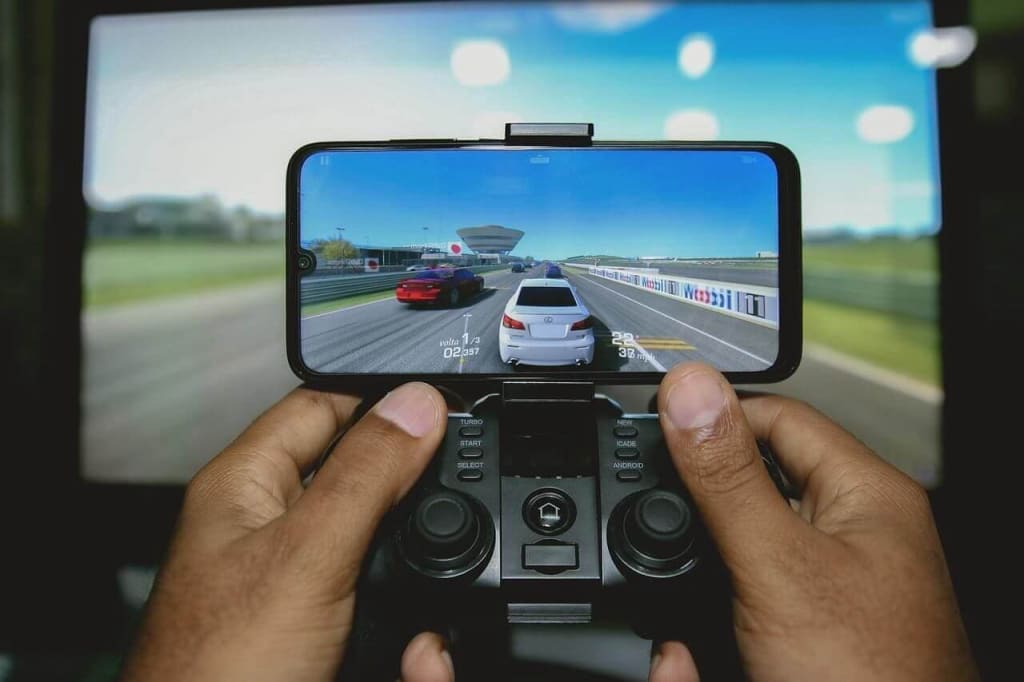
1.How it Started?
Video games have come a long way since their inception. The first video game, called "Tennis for Two," was created by William Higinbotham in 1958 and was played on an oscilloscope. Since then, video games have evolved significantly, both in terms of the technology used to create them and the types of games that are available.
One of the major milestones in the evolution of video games was the creation of the first home video game console, the Magnavox Odyssey, in 1972. This was followed by the Atari 2600 in 1977, which popularized arcade games in the home.
The 1980s saw the rise of personal computers as a gaming platform, and the development of more complex games with rich storylines, such as the "The Legend of Zelda" and "Final Fantasy."
The 1990s brought the emergence of 3D graphics, which revolutionized the way games looked and played. This decade also saw the rise of mobile gaming with the release of the Game Boy in 1989 and the advent of online gaming with the creation of the first MMO, "Ultima Online," in 1997.
Today, video games are an integral part of popular culture and are played on a variety of platforms, including computers, consoles, and mobile devices. They have come a long way from their humble beginnings as simple computer programs and continue to evolve with new technologies and platforms.
2.Impact of Video Games in Industry:
Video games have had a significant impact on the entertainment industry and have become a major form of entertainment for people of all ages. According to the Entertainment Software Association, the video game industry generated $43.4 billion in revenue in the United States in 2019, and it is estimated to reach a global revenue of $300 billion by 2025.
Video games have also had a significant impact on the way that people consume media. Many people now prefer to play video games on their smartphones or tablets rather than watching TV or movies, and this trend is expected to continue in the future.
In addition to the financial impact of video games, they have also had a cultural impact. Many video games have become mainstream media franchises, with games, movies, books, and other merchandise based on popular game franchises.
Video games have also had an impact on education, with the use of video games in classrooms for educational purposes becoming more common. There is evidence to suggest that video games can be effective in teaching certain skills, such as problem-solving and spatial reasoning.
Overall, the impact of video games on the entertainment industry and society at large has been significant and is expected to continue to grow in the future.

3.Esports
Esports refers to organized competitive video gaming, typically between professional players or teams. These competitions can take place online or in person and are often broadcast to a live audience or streamed online.
Esports has grown significantly in popularity in recent years, with many top players earning large salaries and sponsorships. Some of the most popular esports games include "League of Legends," "Dota 2," and "Counter-Strike: Global Offensive."
Major esports tournaments, such as the League of Legends World Championship and The International Dota 2 Championship, can have prize pools in the millions of dollars and attract millions of viewers.
Esports is also gaining recognition as a legitimate sport, with some countries, including South Korea and China, recognizing it as such and even including it in the Asian Games. In 2019, the International Olympic Committee announced that it was considering the inclusion of esports in the Olympic Games.
Overall, esports is a rapidly growing industry with a huge global audience and is expected to continue to grow in popularity in the coming years.
4.How Video Games are Professional?
A professional video game creator is someone who works in the video game industry to design, develop, and produce video games. This can include tasks such as designing game mechanics, creating art and assets, writing code, and working with a team to bring a game to completion.
There are many different roles within the field of game development, including game designers, programmers, artists, and producers. Some professionals may specialize in a particular aspect of game development, while others may have a more general skill set.
To become a professional video game creator, it is usually necessary to have a strong foundation in computer science, as well as specific skills in areas such as game design, programming, and art. Many professionals in the field have a bachelor's degree in a related field, such as computer science or game design.
Experience is also important in the game industry, and many professionals get their start by working on small indie projects or by interning at game development studios. Networking and building connections within the industry can also be important for finding job opportunities.
Overall, becoming a professional video game creator requires a combination of education, skill, and experience, and is a competitive field. However, for those who are passionate about games and are willing to put in the work, it can be a rewarding and fulfilling career.
5.Future of Gaming Industry:

The gaming industry is constantly evolving and it is difficult to predict exactly what the future will hold. However, there are a few trends that are likely to shape the future of the industry.
One trend is the increasing popularity of mobile gaming. The proliferation of smartphones and tablets has made mobile gaming accessible to a wider audience, and this trend is expected to continue in the future.
Another trend is the growing mainstream acceptance of esports. Competitive video gaming is already a significant industry, and it is expected to continue to grow in popularity, with more and more people watching esports tournaments and more traditional sports teams and organizations getting involved in the space.
Virtual and augmented reality are also expected to play a larger role in the gaming industry in the future. These technologies have the potential to revolutionize the way we play games and could lead to the creation of new and immersive gaming experiences.
Overall, the gaming industry is likely to continue to evolve and change as new technologies and platforms emerge. It will be interesting to see how the industry adapts and what new types of games and experiences it will offer in the future.
About the Creator
white f4
Game Changer





Comments
There are no comments for this story
Be the first to respond and start the conversation.